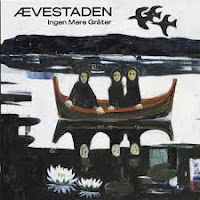 |
Me tuning a borrowed guitar
at Captain's Bar, Edinburgh |
I last visited Edinburgh in June 2021 which, I think I’m
right in saying, was around the time both England and Scotland were emerging from
lockdown. I’d been on a six-day trip taking in Oban, the Isle of Skye and the
Sound of Mull. As I wrote in my
July 2021 blog post Glasgow was meant to be the start and end point of my island adventures but this was
switched to Edinburgh, so I found myself with a brief stay in the Scottish capital. One
of the highlights of that visit was discovering a pub called
Captain’s Bar
which combined my love of beer with my love of folk music. I promised myself I
would return one day to Edinburgh and to Captain's Bar.
In 2022 I went to Newcastle for a gathering of dulcimer
players known as the Spring Fling, organised by my good friend Steve Gray. It’s
an annual event but I missed it last year so, this year, I decided I’d
definitely go and, noting that Edinburgh is less than two hours from Newcastle
by train, I made up my mind to follow my visit to Newcastle this time with an onward journey to Edinburgh.
 |
Dodging downpours
in Newcastle |
The Spring Fling was great fun, despite episodes of incredibly heavy rain. The phrase 'April showers' doesn't really do it justice. But I did get to explore the city a little in between downpours. I’d agreed with Steve and
another good dulcimer friend William Duddy (from Belfast) to arrive a day early
so I could go along to Newcastle’s famous
Bridge Folk Club. The folk club at the Bridge Hotel is the second oldest in Britain. We had a great
evening there doing a solo song each before combining as a trio – me and
William on dulcimers, Steve on mandolin – to attempt a slightly ramshackle
version of Lindisfarne’s ‘We Can Swing Together.’ Taking Lindisfarne songs to
The Bridge Folk Club is as close as you can get to the idiomatic carrying of
coals to Newcastle.
After three days beside the Tyne I left the ‘Spring Flingers’
to continue my journey to Edinburgh. Based on my previous trip, I’d
strategically booked into the same hotel on South Bridge in order to be just a
short walk from Captain’s Bar. And this time, I had my dulcimer with me!
I could have visited Arthur’s Seat, or Edinburgh Castle, or
taken one of those ‘hop on, hop off’ bus tours of the city but I’m afraid,
after reacquainting myself with the atmosphere, the music, the beer and the
good company at Captain’s Bar, I ended up spending most of my time in
Edinburgh in the cosy surroundings of that wonderful pub. On the first night I
was lent a guitar and ended up playing a few songs. Artists perform unplugged
so you have to project, and the audience is regularly politely reminded to
“shush!”
 |
Edinburgh-based
world music duo
Rituala |
I was encouraged to return the next day when world music duo
Rituala would be hosting the afternoon session. Eddy Hanson (Rituala’s viola
player and a member of staff at the pub) had assured me, if I came early, that it would
be quiet enough for me to be able to make my dulcimer heard.
 |
The cast-iron drinking fountain
bearing the inscription
'Keep the Pavement Dry' -
would have been
useful in the
Newcastle rain |
But first, on Friday morning, I did a more conventionally touristic thing and visited the amazing National Museum of Scotland. I was very taken by the
Columbian Printing Press from 1860, the cast-iron drinking fountain from the
1880s, the vintage cars and planes, the Tibetan skeleton dancers, and what looked like a rather psychedelic dulcimer but was actually a
qanbus (or
folding lute) from Yemen (this one a mid-twentieth century instrument made of wood
covered with striking green leather and decorated with mirrorwork and green and
silver sequins. The mirror on the head almost looked like an electronic tuner.)
 |
Check out the
built-in tuner
on this Yemeni
folding lute! |
After all that globetrotting and time travel, I was ready to
pick up my dulcimer from my hotel room and return to Captain’s Bar to catch the
session led by Rituala. Eddy played his beautifully expressive viola alongside
the powerful and clear vocals of Brazilian Giulia Drummond (who also played
percussion and shruti box.) Rituala performed a wide variety of songs - including
a Ukrainian lullaby - and made all the other ‘floor spots’ (including me) very
welcome.
 |
A Tibetan skeleton dancer
- or me travelling home
from Edinburgh? |
Saturday night was, well, more Saturday-night-ish, so the
dulcimer was left back at my hotel room and, once again, the hosts very kindly
lent me a guitar to do a few songs. The evening involved a few pints of the excellent local ale Volcano, which is my excuse for not remembering everyone’s name - but I did have the pleasure of meeting
a superb fellow singer-songwriter called
Casey Birks (a fine musician and a fan
of Scott Walker.)
For those who like an early night, I feel I should warn you
that Captain’s Bar stays open until 1am so it was a
slightly tired passenger, lugging a backpack, suitcase and dulcimer, who
undertook the seven-hour train journey home. I must have looked not unlike the Tibetan skeleton dancer I saw at the museum the day before. But, for all the vagaries of train
travel in the UK, one thought remains: I must plan another trip to Edinburgh
soon.










